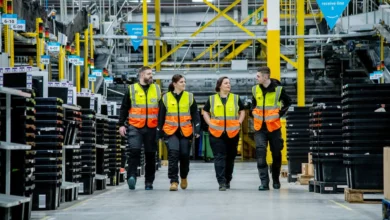Why automation is a crucial opportunity for retailers

It doesn’t take an expert to tell you how prevalent automation is right now in British industries. We’ve all ‘self-scanned’ in the supermarket, engaged with online help desks and know that the industrial production line is now more a robotic parade than a human process.
But, while there’s no denying that the adoption of automated processes has begun, there is still much debate as to what extent it’s affecting each industry, and which processes are most – and least – likely to be replaced by bots.







